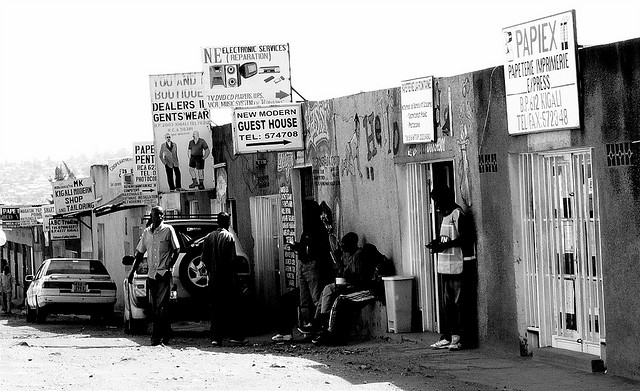In my previous post, I reviewed the progressive book, Africa’s Third Liberation. Today I’ll discuss how Australia can help to bring about that liberation in partnership with African professionals.
The time for relations based purely on the aid donor—aid recipient paradigm has passed, and Australia and African countries must now work on building relations of cooperation and mutual benefit. The argument in Africa’s Third Liberation is that African populations are now involved in the struggle to be liberated from poverty and unemployment, and that success depends on the policies of African governments. The authors argue that governments need to create environments that support economic growth and enable business, investment and the growth of the private sector. Most importantly, there’s a need to end political systems based on patronage networks so that resources can be used to promote growth and development for entire nations.
How can Australia help? One key area is education and skills transfer. There’s potential for us to share our world-class education system and technical expertise in areas relevant to African countries. AusAID’s Africa Awards Program provides a thousand postgraduate scholarships every year to African professionals who want to build their expertise and skills in order to stimulate further economic growth and development in their home countries. So, who are those professionals and what do they hope to achieve?
The African Great Lakes region remains a troubled neighbourhood. The UN’s currently conducting offensive operations against rebels in eastern DRC, and much of the region’s population lives in extreme poverty. There’s progress on the economic front in many countries and, importantly, there’s a strong determination in these societies to achieve economic progress and move away from conflict.
The small nation of Rwanda now has one of the world’s fastest growing economies. Charles Kabera is Head of Risk Management in the Domestic Tax Department of the Rwanda Revenue Authority. Kabera recently completed a course in trade policy design, analysis and negotiation at the University of Adelaide, enabled by funding from AusAID. His areas of expertise are taxation, customs laws and trade facilitation. His aim is ‘to contribute to the improvement of taxpayers’ compliance levels, whereby the Government can fully finance the country’s needs’, enabling Rwanda to end its dependence on foreign aid.
A big part of Kabera’s research was investigating ways trade between Rwanda and eastern Africa can be better facilitated and delays at border crossings can be reduced. If trade between countries in eastern and central Africa can be made easier, the potential for economic growth and job creation is immense. Kabera recommends the adoption of electronic customs data interchange systems to reduce corruption by limiting interactions between traders and customs officials.
Kabera explains:
Continued trade facilitation will pave the way for improved trade to take place. This in turn will encourage the development of small and medium state enterprises, greater manufacturing output, and higher levels of competition, increased job creation, and resultant poverty reduction. This will render the economy more diversified and therefore less susceptible to external shocks and price fluctuations of other economies.
Infrastructure is key. Rwanda is landlocked, making it overdependent on road transport, so initiatives such as the Isaka–Kigali railway are very important in order to link it to Tanzania and Burundi.
Jean De Dieu Ndarishikiye from Burundi is also keen to use the skills and knowledge he’s gained from courses in negotiation and international business at the University of Adelaide. Ndarishikiye is Director of Burundi’s External Relations and International Co-operation Department. He explains what he hopes to achieve in his country:
Burundi is a post-conflict country; our economy has suffered a decade of civil war. I want to help build a balanced society and involve the private sector and civil society in commercial development, because we cannot ignore that trade is now the engine of global life. I want to help to develop trade in services and provide advice to policymakers on trade, regional trade agreements and bilateral and multilateral agreements.
Both scholars are keen to see Australia’s diplomatic and trade relations with Rwanda and Burundi increase significantly.
The boom time is coming for Africa. Mills and Herbst note that the boom will be primed by African governments creating environments conducive for increased business, trade and investment. This is possible only if African countries have professionals with the skills required to implement the needed innovations.
Kabera explains, ‘I can see a strong partnership and relationship between the two countries in the future, whereby Rwanda will benefit from the good education services of Australia and Australia will benefit from many investment opportunities in Rwanda (tourism, agriculture, banking, mining, education, manufacturing).’ Ndarishikiye believes that Australian industry has much to gain from Burundi’s natural resources.
Australia’s helping to nurture Africa’s third liberation by sharing our education system with African professionals. We’ve much to gain economically and politically from a more prosperous Africa.
Sabrina Joy Smith is a PhD candidate with the Centre for the Study of the Great Lakes Region of Africa at the Institute for Development Studies and Management, Belgium. She is currently based in New South Wales. Image courtesy of Flickr user kigaliwire.


